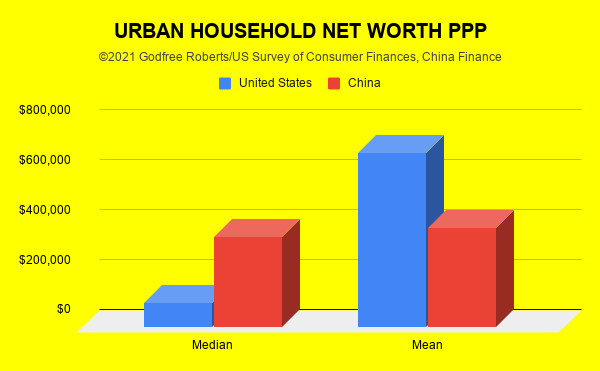What does urban mean and why is it sliced out to make the comparison?
GenZedong
This is a Dengist community in favor of Bashar al-Assad with no information that can lead to the arrest of Hillary Clinton, our fellow liberal and queen. This community is not ironic. We are Marxists-Leninists.
This community is for posts about Marxism and geopolitics (including shitposts to some extent). Serious posts can be posted here or in /c/GenZhou. Reactionary or ultra-leftist cringe posts belong in /c/shitreactionariessay or /c/shitultrassay respectively.
We have a Matrix homeserver and a Matrix space. See this thread for more information. If you believe the server may be down, check the status on status.elara.ws.
Rules:
- No bigotry, anti-communism, pro-imperialism or ultra-leftism (anti-AES)
- We support indigenous liberation as the primary contradiction in settler colonies like the US, Canada, Australia, New Zealand and Israel
- If you post an archived link (excluding archive.org), include the URL of the original article as well
- Unless it's an obvious shitpost, include relevant sources
- For articles behind paywalls, try to include the text in the post
- Mark all posts containing NSFW images as NSFW (including things like Nazi imagery)
I mean i haven't looked into the source but i assume it probably means not rural. This is an interesting point because of course we could go into more depth about the way that the US and China differ in their respective urban vs rural population distribution. China still has a larger proportion of its population living in rural areas than is the case in "developed" countries. And one of the major problems that China has been working on is solving the economic and infrastructure disparity between urban and rural. This is a huge task and one that is still ongoing. That being said the majority of China's population is now living in urban areas, which is a big change from just 70 years ago when the majority was still rural. So while this graph doesn't tell the whole picture it is still fairly representative. As for rural populations in the West, doing a proper analysis of their economic and class makeup is a whole topic into its own and is not as simple as one would think because on the one hand you do have many people in the US living in rural areas in fairly pronounced proverty conditions (Appalachia, Midwest, etc.) but you also have some quite affluent petty bourgeois farmers.
Also with several rounds of white flight, there are a lot of petty b's living in the blurry line between urban and rural
Indeed, there is a whole complex history behind this as these things are not static and change over time. Around the mid century there was a big shift in population in the US from urban to suburban which was not equally distributed across race and class lines.
Evergrande Real Estate math
What?
Could you elaborate what you mean?
I'm a STEM guy and this took me a minute.
This is a powerful graph, but sadly it requires math literacy.

Just to avoid misunderstanding this graph, could you explain to me what was your conclusion comrade?
This will help me understand the message!
As the other response pointed out, this graph obviously hints at greater wealth disparity in the US vs China, as one of the most common ways in which the mean can be pulled upwards relative to the median is by the presence of a small minority with extreme wealth at the very top. The median while not perfect is a better representative of the situation in which the "average" person finds themselves, as by definition half are above and half are below this value. Imo one of the most important statistics concepts that everyone should learn is the difference between mean and median and what each value can tell us about how a set of values is distributed.
Short version: A few ultra-rich people in the US own a lot of real estate, bringing up the average, whereas in china its more equally spread out.
When the mean is very different from the median, it means the standard deviation is very high (IE, the values are really spread out, rather that clumped close).The gini coefficient refers to the same thing, but measuring inequality within an economy specifically: 0 gini means everyone has the same net worth, 1 gini means 1 person has 100% of the value. In capitalism, the end-result is just like in a game of monopoly: the end result will be 1. In socialism, the end result, acheived via planning an equitable distribution, should be to get as close to zero as possible.
The standard deviation can be very high with the mean and median being the same.
What the difference between the mean and median indicates is a highly skewed (not normal) distribution.
Excellent explanation!
Thank you for your explanation comrade! This helps a lot!
Only a little.
Now that's how a planned economy should look
